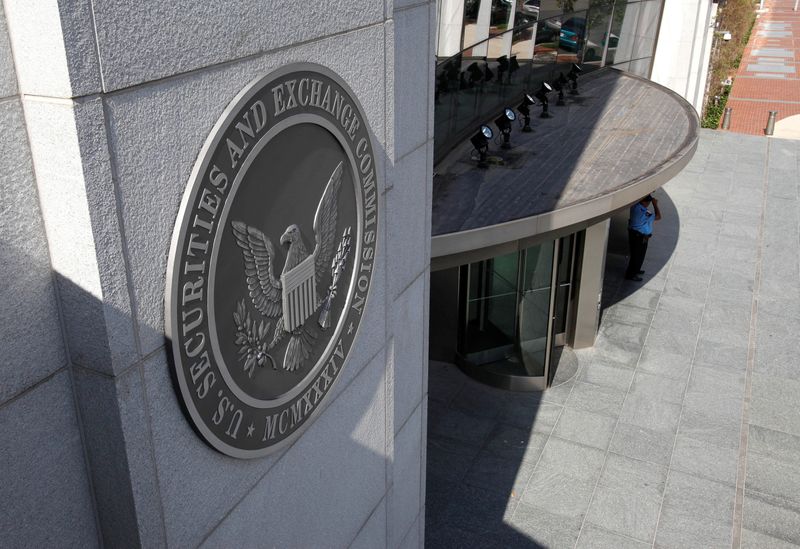By Clark Mindock
(Reuters) - A federal appeals court on Friday dismissed a lawsuit by four Republican-led states that sought to block a U.S. Securities and Exchange Commission rule requiring investment funds to categorize and disclose their proxy votes on issues including environmental, social and governance (ESG) matters.
A three-judge panel of the New Orleans-based 5th U.S. Circuit Court of Appeals concluded that Texas, Louisiana, Utah and West Virginia lacked standing to challenge the rule as they had not shown how the states, or their citizens, would be directly harmed by it.
The panel included two judges appointed by Republican presidents and one Democratic appointee. The state attorneys general did not immediately respond to requests for comment, while an SEC spokesperson said the agency is pleased with the decision.
The SEC in 2022 adopted a rule set to take effect in July that expands the amount and type of information investment funds must disclose publicly about their proxy votes.
Funds will be required to report their votes in 14 categories, four of which are ESG-focused including climate change, human rights and diversity issues.
The agency said the rule would give investors more information about how funds, which own roughly 32% of the market capitalization of all U.S.-issues equities, are wielding voting power during shareholder votes.
The states sued in early 2023, arguing the rule amounts to an attempt by the SEC to pressure investment advisors and publicly traded companies to favor the agency's preferred social and environmental policies.
They said the rule would subject investment advisors to additional compliance costs, which would then be passed along to fund investors, including the states.
The 5th Circuit panel called those harms speculative, and said the states had not shown that any increased costs will actually be passed along. They also said the states had not shown the rule would directly harm industries the states have an interest in protecting, like oil and gas in Texas.

The court gave the states room to re-file the case.
U.S. Circuit Judge James Ho, an appointee of Republican former President Donald Trump, concurred with the majority's ruling but said "ambiguities and anticipated disputes" over the proper categorization of some votes "could support a valid theory of economic injury."